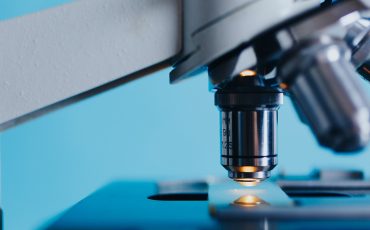 Researchers at King’s College London have for the first time identified a gene linked to age-related degeneration of the intervertebral discs in the spine, a common cause of lower back pain.
Researchers at King’s College London have for the first time identified a gene linked to age-related degeneration of the intervertebral discs in the spine, a common cause of lower back pain.
Costing the UK an estimated £7billion a year due to sickness leave and treatment costs, the causes of back pain are not yet fully understood. Until now, the genetic cause of lower back pain associated with lumbar disc degeneration (LDD) was unknown, but the largest study to date, published this week in the journal Annals of Rheumatic Diseases, has revealed an association with the PARK2 gene.
The researchers, funded by the Wellcome Trust and Arthritis Research UK, say more research into this surprising association needs to be carried out in order to fully understand how it is triggered, but this new finding could ultimately pave the way towards developing new treatments in the future.
LDD is a common age-related trait, with over a third of middle-aged women having at least one degenerate disc in the spine. Discs become dehydrated, lose height and the vertebrae next to the discs develop bony growths called osteophytes. These changes can cause or contribute to lower back pain. LDD is inherited in between 65 – 80 per cent of people with the condition, suggesting that genes play a key role.
Scientists compared MRI images of the spine in 4,600 individuals with genome-wide association data, which mapped the genes of all the volunteers. They identified that the gene PARK2 was implicated in people with degenerate discs and could affect the speed at which they deteriorate.
The researchers say the results show that the gene may be switched off in people with LDD. Although it is still unclear how this might happen, it is thought that environmental factors, such as lifestyle and diet, could trigger this switch by making changes known as epigenetic modifications to the gene.
Dr Frances Williams, Senior Lecturer from the Department of Twin Research and Genetic Epidemiology at King’s College London, said: ‘Back pain can have a serious impact on people’s lives and is one of the most common causes of sickness leave, costing both the NHS and UK economy billions each year.
‘We have performed, using data collected from around the world, the biggest genome-wide association analysis of lumbar disc degeneration (LDD). We know that people whose discs wear out are at increased risk of episodes of lower back pain, but normal human discs are hard to get hold of to study so until now our knowledge of normal human biology was incomplete.
‘We have identified a gene called PARK2 as associated with LDD. We have shown that the gene may be switched off in people with the condition.
‘Further work by disc researchers to define the role of this gene will, we hope, shed light on one of most important causes of lower back pain. It is feasible that if we can build on this finding and improve our knowledge of the condition, we may one day be able to develop new, more effective treatments for back pain caused by this common condition.’
Notes to editors
View the paper, ‘Novel genetic variants associated with lumbar disc degeneration in northern Europeans’.
For further information or to interview Dr Frances Williams, please contact Emma Reynolds, PR Manager (Health) at King’s College London, on 0207 848 4334 or email emma.reynolds@kcl.ac.uk.
For further information about King’s visit our ‘King’s in Brief’ page.
The Wellcome Trust is a global charitable foundation dedicated to achieving extraordinary improvements in human and animal health. It supports the brightest minds in biomedical research and the medical humanities. The Trust’s breadth of support includes public engagement, education and the application of research to improve health. It is independent of both political and commercial interests.
Arthritis Research UK is the leading authority on arthritis in the UK, conducting scientific and medical research into all types of arthritis and musculoskeletal conditions. It is the UK’s fourth largest medical research charity and the only charity solely committed to funding high quality research into the cause, treatment and cure of arthritis.






